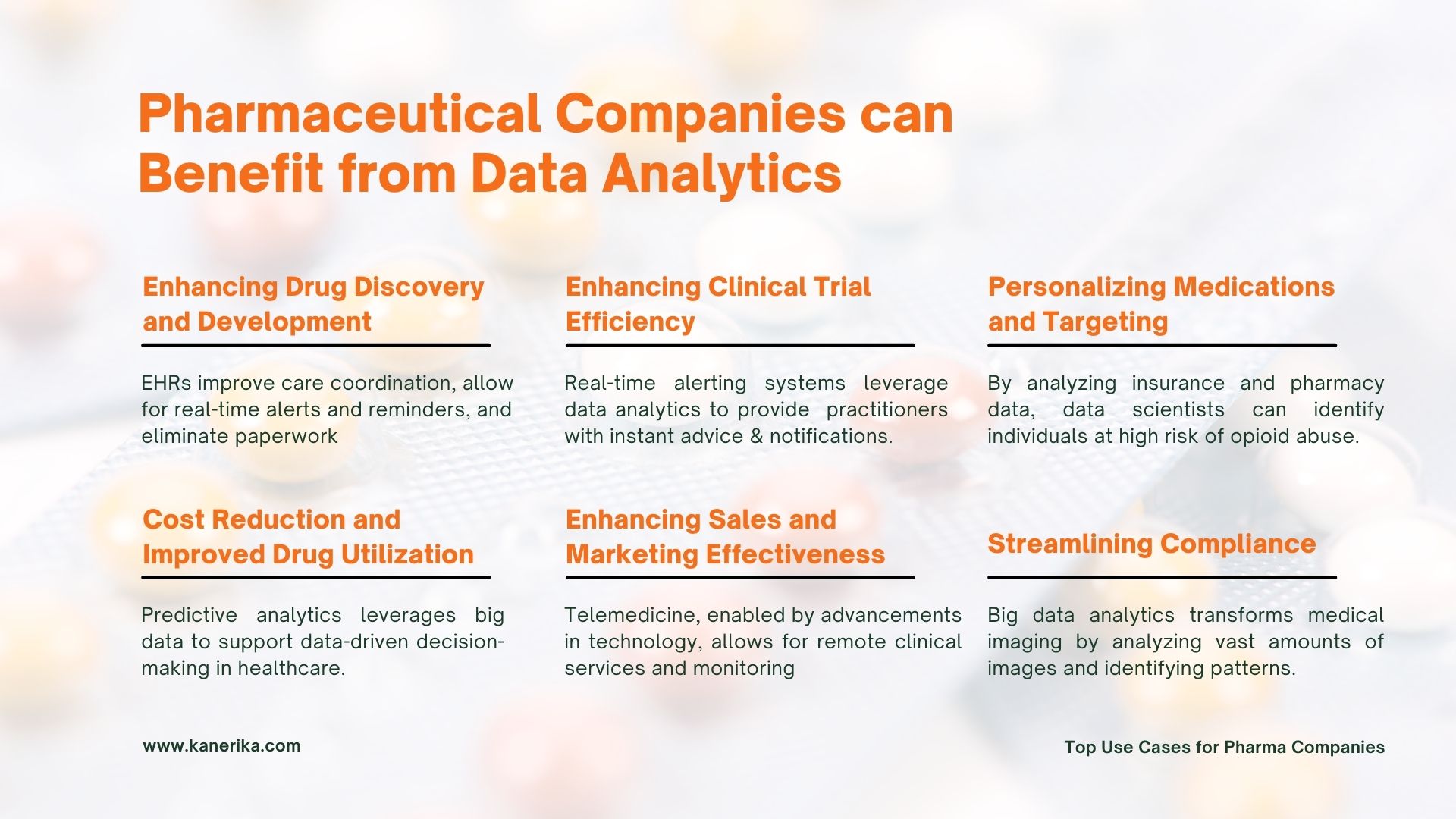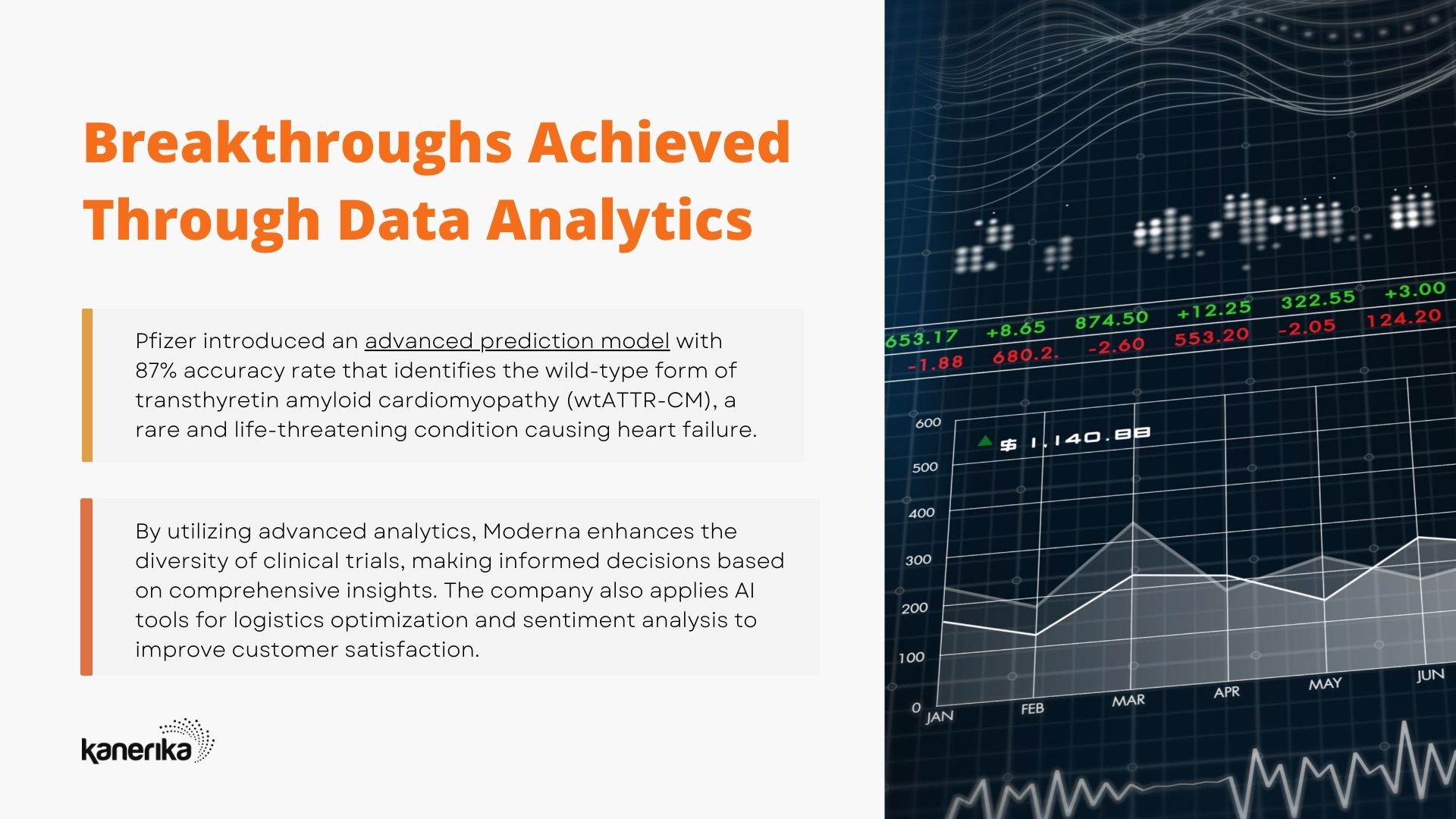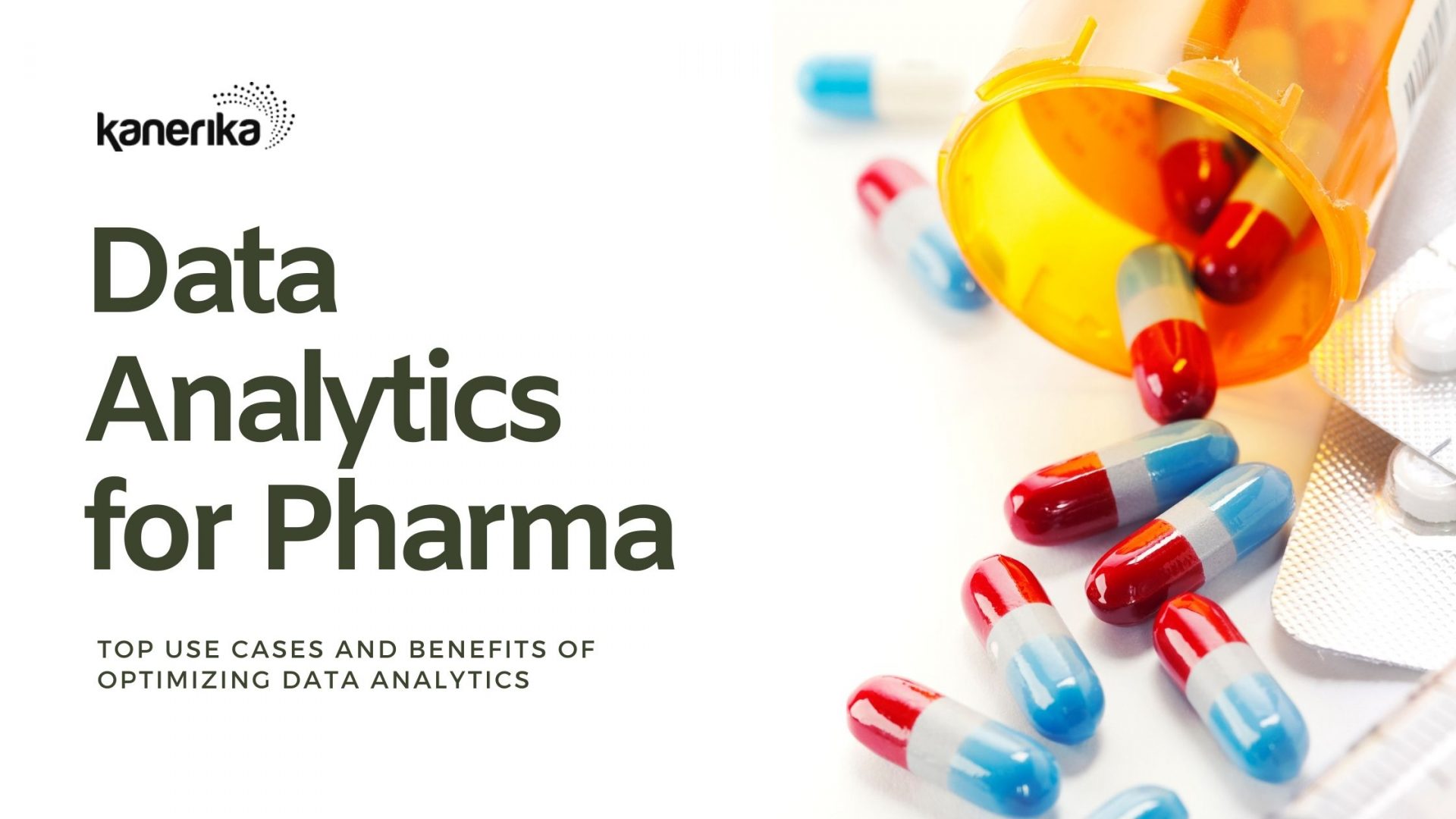200,000 people are born every day. That’s right. Two hundred thousand. With each birth, the weight of responsibility falls squarely upon the shoulders of the pharmaceutical industry to ensure the well-being and happiness of each and every individual.
Brace yourself for a revelation: by 2027, the pharmaceuticals market volume is predicted to reach an extraordinary US$1,435.00 billion. It’s a testament to our unwavering commitment to improving healthcare worldwide.
But, how do we path the way for a healthier tomorrow? What measures is the industry taking?
The realm of advanced analytics holds tremendous potential for pharmaceutical companies. As per McKinsey’s analysis, the broader integration of data-driven technologies can significantly enhance business operating performance. Over five years, it is projected that adopting these technologies could lead to a remarkable increase of 15 to 30 percent in EBIDTA (Earnings Before Interest, Taxes, Depreciation, and Amortization). Looking ahead to a decade, the expected improvement ranges between 45 to 75 percent, indicating a substantial transformation on the horizon.
Let’s decode how exactly data analytics for pharms development is revolutionizing the pharmaceutical sector!
How does Data Analytics Ensure Success for Pharmaceutical Companies?
To maximize benefits, a comprehensive organizational strategy is crucial. Data analytics for pharma development offers significant advantages for gathering data and generating impactful insights at scale.
However, companies need to prioritize their investments wisely. There is untapped potential for pharma businesses to embrace data-driven strategies across all functions. Overcoming data and process silos is vital for business intelligence and big data analytics in the industry.
Successful implementation requires agile use-case sprints, streamlined governance, and effective change management. Leadership-driven action helps dispel biases and skepticism while starting with targeted use cases and demonstrating early ROI builds momentum and garners support for the analytics initiative.
Let’s understand the use cases in more detail.
Top Use Cases for Data Analytics in Pharma

Enhancing Drug Discovery and Development
The rising cost of introducing new drugs and the expiration of blockbuster drug patents have prompted the pharmaceutical industry to seek ways to expedite drug development. Leveraging pharma data analytics can accelerate drug discovery by analyzing scientific publications, research papers, and control group data.
By employing predictive algorithms, pharmaceutical firms can make informed decisions, optimize operations, enhance safety protocols, and improve drug trials, leading to better financial performance and increased innovation in drug discovery.
Enhancing Clinical Trial Efficiency
Utilizing big data analytics in the pharmaceutical field can help reduce costs and expedite clinical trials. By analyzing various data points such as participants’ demographics, historical data, remote patient monitoring data, and past clinical trial events, pharmaceutical businesses can optimize the entire process.
Through the identification of test sites with high patient availability and the application of pharmaceutical analytics, disease diagnosis can be accelerated. Additionally, control groups and clinical trials can be designed more efficiently, and the overall efficacy of clinical trials can be increased.
Personalizing Medications and Targeting
Big data analytics in the pharmaceutical industry can address the challenge of personalizing medications for individuals based on their unique genomic makeup.
By analyzing genomic sequencing data, patient medical sensor data, and electronic medical records, pharmaceutical companies can identify patterns and create more effective and personalized medications.
Cost Reduction and Improved Drug Utilization
To enhance pharmacy operating margins in the face of increasing pressures, pharmaceutical businesses can employ granular analysis of key metrics. These include average ingredient cost per prescription and rebate percentage of total drug spending, etc.
Capturing Relevant Data through Social and Search Engine Listening
Pharmaceutical companies can gather valuable information by monitoring online conversations about product launches and competitor activities. Social and search engine listening powered by data analytics for pharma development enables companies to gauge public perception and address safety-related concerns promptly.
Enhancing Sales and Marketing Effectiveness
Pharma business intelligence facilitates the identification of new markets. Simultaneously, enabling analysis of marketing channel efficiency, empowering companies to prioritize efforts and gain a competitive edge.
By analyzing patient trends and leveraging innovative technologies and big data analytics, pharmaceutical businesses can optimize sales and marketing strategies, leading to increased effectiveness and improved decision-making.
Streamlining Compliance
With the complexity and increasing stringency of government regulations, non-compliance can lead to reputational damage and significant financial liabilities. Big data analytics in the pharmaceutical industry aids in uncovering insights, streamlining governance decisions, and highlighting gaps in drug safety. Digital operations assistance can also support human workers in daily tasks and mitigate the risk of compliance failures.
Enhancing Operations and Employee Training
Pharmaceutical companies can achieve cost reductions and process improvements by leveraging pharmaceutical analytics and data insights. Advanced analytics can provide valuable information on how machine settings, operator training levels, or raw material inputs impact output quality.
Meanwhile, predictive analytics and big data analytics enable the prediction of risks such as quality issues. Alongside machine failures, or changes in demand, enabling analytics leads to proactive decision-making and process optimization.
How Pharma Companies Harness Data Analytics for Breakthroughs

Early Detection of Rare Diseases: Pfizer’s Breakthrough
Pfizer introduced an advanced prediction model that identifies the wild-type form of transthyretin amyloid cardiomyopathy (wtATTR-CM), a rare and life-threatening condition causing heart failure. With an 87 percent accuracy rate, this model utilizes electronic health records and medical claims to diagnose patients. Thus, leading to a timely treatment and improved outcomes for individuals with ATTR-CM.
Enhanced Diversity in Clinical Trials: Moderna’s Data Analytics
Moderna leverages Google Cloud’s Looker platform to access reliable and secure metrics, enabling in-depth analysis of clinical trial data and integration with external medical datasets. By utilizing advanced analytics, Moderna enhances the diversity of clinical trials, making informed decisions based on comprehensive insights. The company also applies AI tools for logistics optimization and sentiment analysis to improve customer satisfaction.
Revolutionizing Cardiovascular Trials: AstraZeneca’s AI Initiative
AstraZeneca pioneers AI-driven clinical trials, particularly in cardiovascular studies, through the AIDA project. This initiative encompasses event detection, harmonization, and classification components. Leveraging home monitoring, geofencing, and patient self-reporting, AstraZeneca expedites event detection. The integration of structured and unstructured data with deep learning algorithms automates data processing. Meanwhile ,machine learning facilitates event identification and classification, potentially reducing the time for new treatments to reach patients.
Data Analytics: Shaping the Future of Pharmaceutical Innovation with Kanerika
The pharmaceutical industry is harnessing the power of data analytics for pharma development. Companies are using AI to revolutionize various aspects of drug discovery, clinical trials, personalized medicine, and pandemic response.
Kanerika is a platform leading pharma companies can rely on. When Dr. Reddy’s faced the challenge of slow response times and data fragmentation across applications and departments, Kanerika collaborated with them to design and deploy a unified data architecture, including a data lake and a new Hadoop stack.
We standardized reporting methods, cleansed existing data, and enabled user self-service with new dashboards and reports, which resulted in a 20x reduction in time to an answer, enabling faster decision-making. Sounds like the right fit for you?
Book a Meeting Today to Level Up your Business!
FAQ
How does data analytics in the pharmaceutical industry help in streamlining compliance with government regulations?
How can pharmaceutical businesses achieve cost reduction and improved drug utilization through data analytics?
How does big data analytics address the challenge of personalizing medications in the pharmaceutical industry?
What are the benefits of utilizing big data analytics in clinical trials for pharmaceutical businesses?
How can data analytics enhance drug discovery and development in the pharmaceutical industry?
What are the key benefits of early disease detection through data analytics in pharmaceuticals?
How can AI-driven initiatives in clinical trials reduce the time it takes for new treatments to reach patients?
How can data analytics contribute to logistics optimization in pharmaceutical companies?
How does pharma business intelligence contribute to enhancing sales and marketing effectiveness?
Follow us on LinkedIn and Twitter for insightful industry news, business updates and all the latest data trends online.









